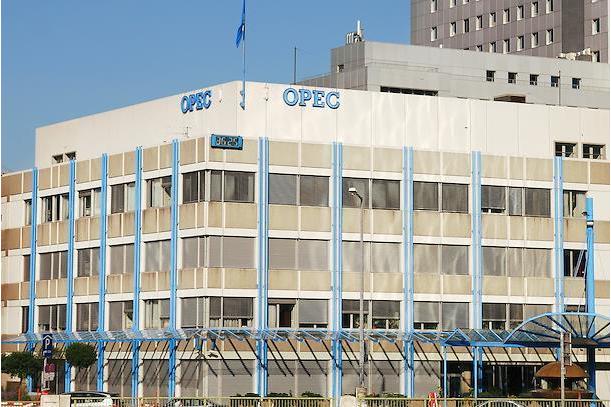Latest News
OPEC output to decline in January as production-cut deal comes into force

News Highlight
- The International Energy Agency said it expects steeper cuts in OPEC production this month as Saudi Arabia and other producers slash output to boost oil prices.
The International Energy Agency, the world’s largest energy forecaster, said today that it expects oil production from the Organization for Petroleum Exporting Countries (OPEC) to decline in January as members of the oil cartel implement an oil production-cut deal agreed last year.
The Paris-based organization said it expects steeper cuts in OPEC production this month as Saudi Arabia and other producers slash 1.2 million barrels per day from their output in an effort to boost oil prices.
“Initial indications are that a steeper (month-on-month) decline may be on the way in January," the IEA said in its latest Oil Market Report, according to AFP.
In November last year, OPEC members reached a tentative deal to cut production from 33.7 million bpd to 32.5 million bpd starting from January this year. Under the deal, Saudi Arabia is expected to cut production to 10.1 million bpd, Iraq to 4.4 million bpd, Kuwait to 2.7 million bpd and UAE to 2.9 million bpd. But Iran, which recently returned to the oil market after Western countries lifted sanctions under a 2015 nuclear deal, can ramp up output to 3.8 million bpd. Nigeria and Libya were granted exemptions from the production cuts owing to ongoing armed conflicts, while Indonesia suspended its membership.
“OPEC's elevated supply during 2016 helped push global oil stocks to record levels and the explicit aim ... of the deal is to speed the market's return to balance by working off the excess,” the IEA said. “Coordinated action with non-OPEC countries... could hasten the process.”
In December, OPEC reached an agreement with non-OPEC countries, led by Russia, to cut their own production by 600,000 bpd. The United States, the world’s largest oil producer, did not participate in the production cut. Since both deals were struck, oil prices have risen by about 20 percent to above $50 per barrel. But the rebound in prices have been moderated by the uncertainty around implementation of the deals and rising US shale production with higher oil prices.
As at 3.42pm GMT, Brent Crude, the global benchmark, rose 0.78 percent $54.34 at the Atlanta-based Intercontinental Continental Exchange. On the New York Mercantile Exchange, the West Texas Intermediate, the US benchmark, rose 0.72 percent to $51.45 per barrel.
Related News
Latest Blogs
- How far Nigeria’s maritime has come
- The curious case of Nigeria’s bans
- Why Africa will be missing on ‘Globalisation 3.0’
- The Nigerian high-interest-rate trap
- How Tinubu is ensuring equitable access to public services
Most Popular News
- Artificial intelligence can help to reduce youth unemployment in Africa – ...
- Wärtsilä chosen for 30 MW power plant project in Victoria Island, Lagos
- Dual conference in Cairo promotes innovation and asset integrity in Africa
- Lower-income countries commit record $250m to immunisation – Gavi
- IMF warns of global public debt approaching 100 percent of GDP
- User account leaks fall in Nigeria, globally









